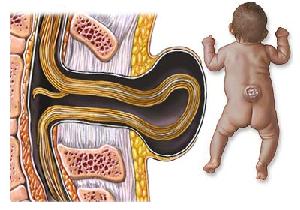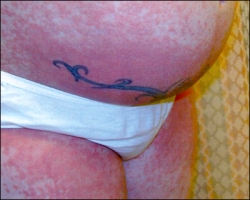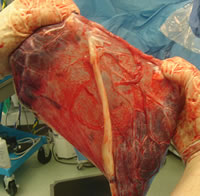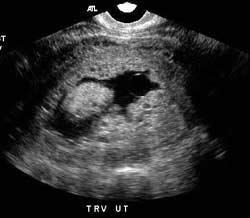What Is Spina Bifida
Spina Bifida is one of the most common types of neural tube birth defects. You may have heard of it before, but do you really know what it is or what causes it? Spina Bifida is when the embryonic neural tube, consisting of the brain, spinal cord and meninges (the protective covering that surrounds the brain and spinal cord), fails to close completely. The neural tube is an embryo's developing brain and spinal cord. This tube should close around the 28th day after fertilization occurs. Some of the vertebrae that surrounds the spinal cord doesn't form completely and remains open…
PUPPP Rash
Pruritic Urticarial Papules and Plaques of Pregnancy It's not uncommon to feel itchy during your pregnancy – this will mostly be felt around your stomach and breasts and is usually caused by your changing hormones and your stretching skin If you do suffer from common issues, such as dry skin, eczema or food allergies then these may be made worse over the course of your pregnancy Some pregnant women may also experience more intense itchiness during pregnancy. This is often seem in conjunction with itchy, red bumps and larger patches of a hive-like rash on their bellies. This is known…
Placenta Accreta
What Is Placenta Accreta and How Will It Effect You? Most women don’t really think about the placenta while they are pregnant and many don’t realize just how big a role it plays in the development of your baby. So for the same reason many of you probably wouldn’t have an idea of what happens when the placenta does not function as it should. During a normal pregnancy the placenta attaches to the uterine wall, however there is a condition which may occur if the placenta attaches itself too deeply into the wall of the uterus. This condition is known…
placenta previa
What Is Placenta Previa? With placenta previa the placenta lies close to or covers the cervix. Although it is not that common, it can be very serious because of the chance of heavy bleeding during pregnancy or even during labor. It is not entirely understood what may cause placenta previa, although there are risk factors which may increase the chance of it, such as having previously had a cesarean section. What are the symptoms of placenta previa? With placenta previa, there is really only one major symptom and that is painless bleeding without contractions, but this usually doesn't occur until…
Placenta Abruption
Placental abruption is when the placenta separates from the site which it is implanted in the uterus. If the placenta begins to detach during the course of your pregnancy there will be some bleeding as the blood vessels which attach to your placenta will begin to detach. The larger the area which detaches, the greater the amount of bleeding. What may cause placenta abruption? Previous pregnancies with placenta abruption Hypertension (high blood pressure) Cigarette smoking Multiple/Twin pregnancy Is placenta abruption dangerous? Placenta abruption is dangerous mainly because of the risk of uncontrolled bleeding or haemorrhaging which may occur as a…
Molar Pregnancy
What Is A Molar Pregnancy and How Is It Treated? A molar pregnancy is the result of an in placenta which is caused by a problem when the egg and sperm join at fertilization. Molar pregnancies are usually extremely rare – occurring only in 1 out of every 1000 pregnancies A molar pregnancy may also be called gestational trophoblastic disease (GTD), hydatidiform mole There are two types of molar pregnancy: Complete molar pregnancy. In place of a normal placenta and embryo, the hydatidiform mole is abnormal placental tissue that grows into a grapelike cluster that can fill the uterus Partial…
Hypotension
In today’s world of modern times and modern living, a normal blood pressure for an average American is considered to be 120/80. If your blood pressure returns a figure such as this, then you are generally in good health. Hypotension refers to abnormally low blood pressure, and a reading even as little as 20mmHg below normal can result in hypotension. Of course there are many people in the world who suffer from Hypotension, also known as Low Blood Pressure, and they lead normal healthy lives. There are of course others who suffer terribly from the symptoms of hypotension. It is…
Hyperemesis Gravidarum
What is Hyperemesis Gravidarum? Hyperemesis gravidarum is persistent nausea and vomiting – up 20 or 30 times a day - and will often result in the loss of up to 20% of body weight, which in itself can lead to other complications such as dehydration, liver damage and low electrolyte levels. Hyperemesis gravidarum affects fewer than 1% of pregnant women and in some cases it will last the full duration of pregnancy, although the severity may reduce as the pregnancy progresses. Generally there is little direct danger to your developing baby, as he/she will act more as a parasite and…
HELLP
HELLP Syndrome usually appears in the third trimester and it is most common in first time pregnancies. It may also recur in any following pregnancies if you did develop this during your first pregnancy. A simple explanation of the syndrome is that it is a very severe form of pre-eclampsia, and about 15% of women with pre-eclampsia will go on to develop HELLP. What are the symptoms of HELLP? HELLP syndrome is characterized by liver compromise during or after a pregnancy, complicated by hypertension and/or pre-eclampsia. The letters stand for: Hemolytic anemia (when red blood cells break down) Elevated Liver…
Excess Amniotic Fluid
Amniotic fluid plays such a vital role during your pregnancy, but what exactly is it and what is the role that it plays? What is the role of Amniotic Fluid? Amniotic fluid fills the sac surrounding your developing baby and plays several important roles: It has a cushioning effect that protects your baby from trauma. It prevents the umbilical cord from being compressed and reducing your baby's oxygen supply. It helps maintain a constant temperature in the womb. It protects against infection. It allows your baby to move around so that his muscles and bones develop properly. During the course…










